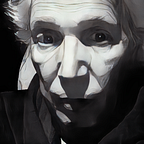Ezra Pound’s Complicated Legacy
Reading The Cantos
Ezra Pound’s influence on poetry, literature, and the ethos and aesthetics of Modernism is indisputable. T. S. Eliot, James Joyce, H.D., Wyndham Lewis, William Carlos Williams, D. H. Lawrence, Robert Frost, the venerated William Butler Yeats, and Ernest Hemingway, among many others, were shaped by him. He was a tireless promoter of these writers and more, and was the unmistakable brilliant leader of the movement away from Wordsworthian Romanticism and toward Modernism. Literary biographer, Hugh Kenner, has even gone so far as to call the early twentieth century, the Pound Era, as evidenced by his excellent book of that name.
The Cantos — Pound’s magnum opus and colossal work of modernist poetry — runs to nearly 800 pages and took him more than half his life to write: even so, he never finished. Widely held to be an intense and challenging read, The Cantos is generally considered one of the most significant works of twentieth century Modernist poetry. As in Pound’s prose writing, the themes of economics, governance and culture are integral to the work’s content.
Pound, and especially his greatest, lifelong work, The Cantos, have always been controversial, initially so because of the experimental nature of the writing. His name can scarcely be mentioned without evoking his notorious reputation: to be sure, the…
